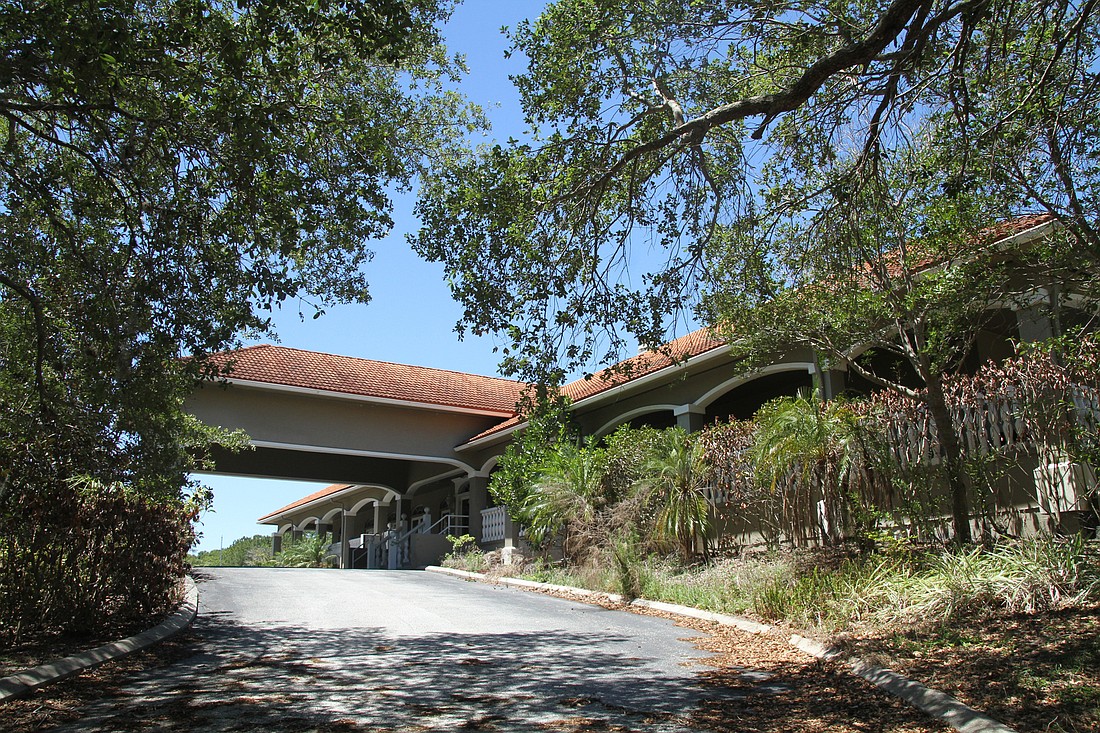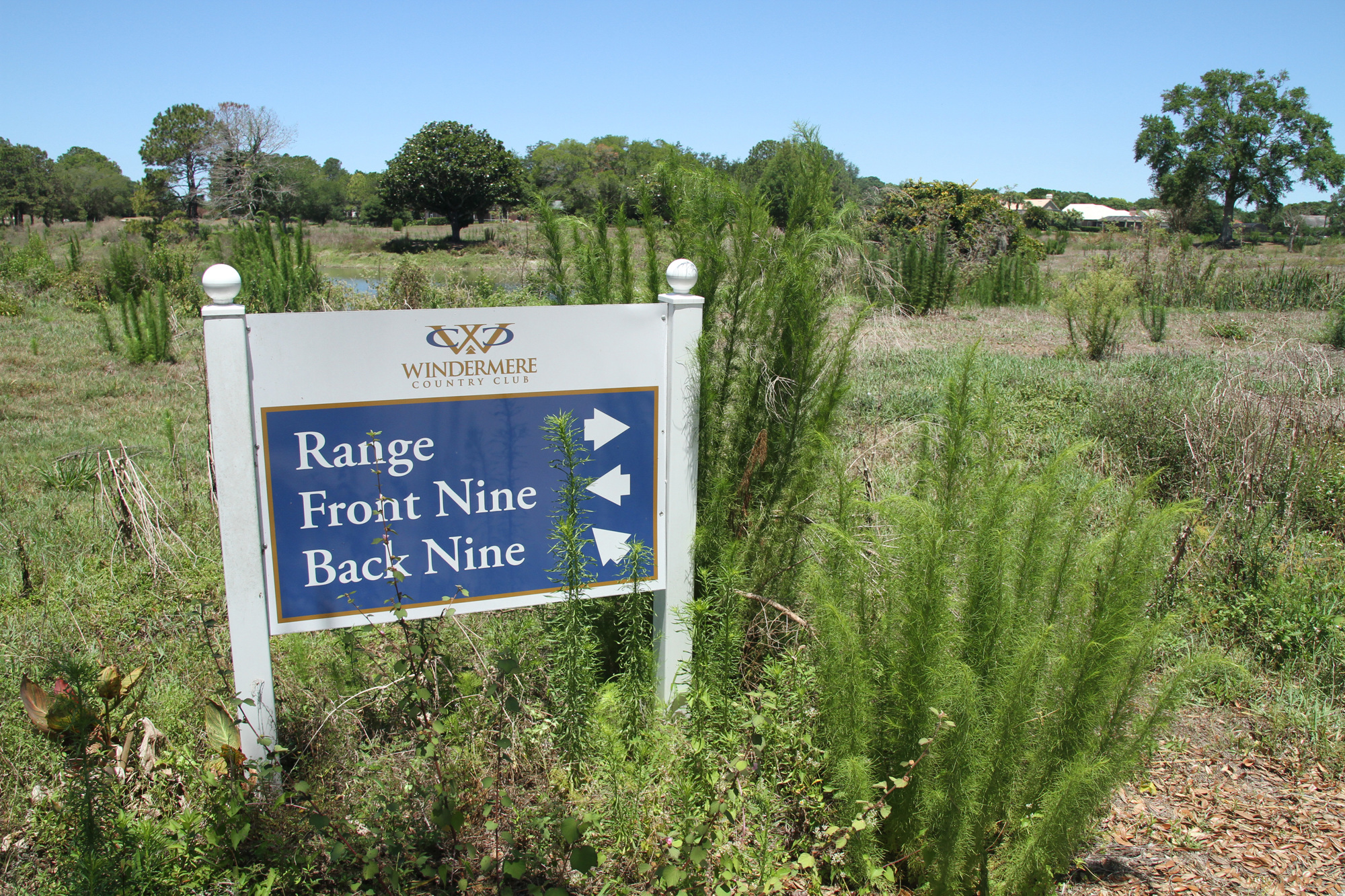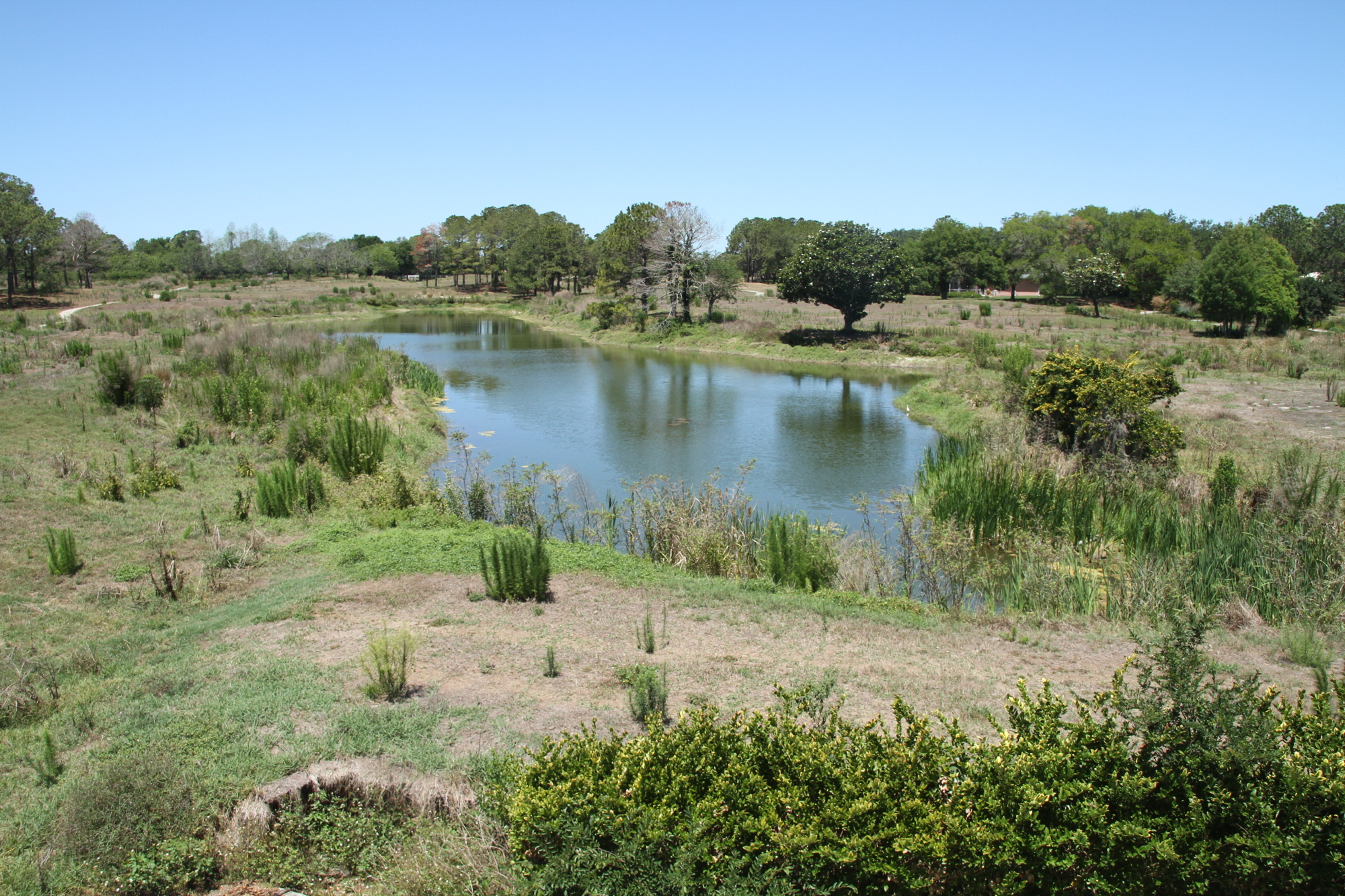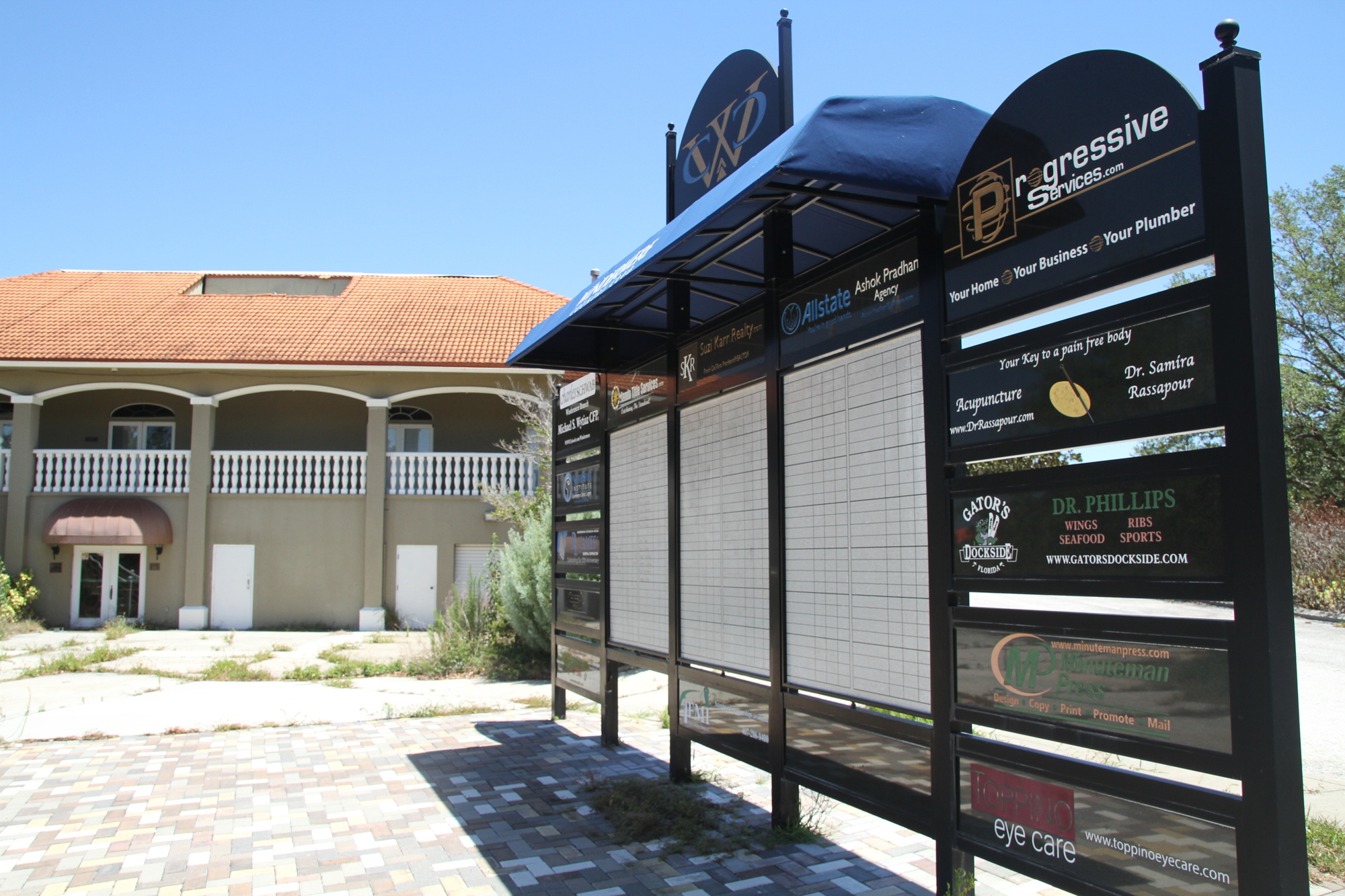- April 25, 2024
-
-
Loading

Loading

WINDERMERE The handwriting is faded but still legible.
A scoreboard outside the shuttered Windermere Country Club clubhouse still features numbers from a high-school tournament that took place on what once was a gem of a golf course. The numbers are faint, and all the scores had not yet been recorded, but it appears Olympia High was winning that match.
Inside, just a few feet behind the glass of the clubhouse’s front doors, is a white grand piano. A real-estate for-sale sign leans on the wall next to it. A chandelier hangs in the foyer, but the only light illuminating the room is the Florida sunlight forcing its way through the blinds.
A critter rustles in the overgrown, unkempt bushes along the clubhouse’s front drive. Out back, nature already has begun reclaiming what once were pristine fairways and greens. If it weren’t for a sign with arrows pointing the way to the range, front nine and back nine — and the executive homes surrounding the land — it would be nearly impossible to discern that this was once a golf course.
For its owner, Bryan DeCunha, the darkened clubhouse and fading scoreboard are mere relics of a vibrant club that exhaled its last breath long ago. They are evidence of a failed business in a declining industry.
But, his plan to redevelop the club into additional homes has been met with resistance from residents, culminating on Oct. 18, 2016, when the Orange County Commission denied transfer of the county-owned development rights of the golf course — rights DeCunha needs to rezone the golf course for development.
Currently, DeCunha is fighting that denial with a pair of lawsuits filed against Orange County (see The Heart of the Matter below). He maintains he has tried to work with club residents, offering — among other concessions — several revisions to his redevelopment plan and even $1 million to the homeowners association from the proceeds of the eventual sale.
And, perhaps most important, DeCunha remains steadfast in his position that development is the best solution available.
“They will not bankrupt me,” DeCunha said of his intentions. “I’ll follow the litigation process for 10 years from now, if that’s what it takes.”

ANATOMY OF FAILURE
According to Orange County Property Appraiser records, DeCunha and his partners — operating as Windermere County Club LLC — purchased the property April 29, 2011, for $2,174,100.
DeCunha said he was a member of the Windermere Country Club for two years before he decided to buy it. He said he also knew Orange County held the development rights to the property. But that didn’t matter. His intention was to resurrect the club and bring it back to its former glory — and not to accelerate its failure and sell the land for development, as some residents have suggested.
“I spent $1.2 million in the first two years,” he said. “We added an executive chef from Ruth’s Chris and a sous chef. We even had a (food) delivery service for residents. … But no one came. No one supported the club.
“There are many golf courses available for sale,” DeCunha said. “Why would I buy one that has these issues, invest all this money and then wait six years to try to develop it? I loved the golf course. I couldn’t see why it wouldn’t succeed.”
Chris Doran, who served as membership and marketing director for the club, said she remembers DeCunha’s efforts.
“I watched Bryan DeCunha put his heart and soul into the club,” she said. “He was there every day, and I felt he was not only passionate about golf but that he was also passionate about the club’s members and staff. He wanted to do whatever he could to make the club a meeting place where residents, members and non-members could meet to golf and socialize.”
Victor Figueroa, a longtime club member, concurred.
“Despite a difficult time in the golf industry, Mr. DeCunha never stopped improving and upgrading the golf course and clubhouse to satisfy the membership,” he said. “I feel that he took great personal satisfaction in owning a top-quality golf course in Florida.
“Windermere Country Club had potential as an exclusive private club,” Figueroa said. “This was Mr. DeCunha’s vision as he has always been associated with such clubs in Ontario, Canada. He had been a member of Windermere Country Club for a few years prior to purchasing and appreciated the camaraderie of a tight group of members.”
However, despite those efforts, DeCunha said membership declined. Citing mounting costs and myriad required renovations, he closed the course in April 2016.
“The irrigation would be $1 million; it’s completely rotted into the ground,” DeCunha said. “There’s $800,000 for contamination, the potable water tanks have disintegrated. There’s $600,000 in maintenance, and the roof of the country club needs to be replaced.”
Since the closure, DeCunha said he has paid for a custodian to look after the property daily.
A DIFFERENT TAKE
Even before the purchase of his home in Windermere Club was complete in 2012, George Huxhold, current vice president of Windermere Club’s homeowners association, had purchased a membership to the golf club.
“I joined the club shortly after Mr. DeCunha bought the property,” he said. “The course was beautiful. I paid my dues while still in Virginia just so I would have a course to play when I went down there. … We probably supported him more than anybody else.”
However, Huxhold said it didn’t take long before he noticed the club changing.
“I saw a gradual degradation of the quality of the club and the golf course,” he said. “He did hire a really nice chef and did some good stuff with the dinners, but the clubhouse was set up badly.”
Furthermore, Huxhold, along with many residents who oppose the proposal, suspect DeCunha’s ultimate plan was to sell the property for development.
He cites two indicators: “The first was that he disbanded the golf course advisory committee, and the second was when he fired the seasoned head pro and put some PGA interns in his place.”
In May, DeCunha launched an online campaign, including a website and Facebook page, to advertise his proposal.
“I do not view it as having launched a social media/web campaign,” DeCunha said. “Those who oppose efforts to redevelop the property initially established a website and Facebook page. I disagree with the characterization of the facts expressed in those media platforms, and I was concerned about inaccurate and thus potentially false representations being circulated as facts. ... I wanted to make sure that all Orange County residents, including the Windermere Club homeowners, had access to the most accurate information instead of incorrectly reported speculative information.”
Huxhold disagrees.
“I think it’s a plea to the homeowners to approve (the proposal),” he said. “I think (DeCunha) is afraid the HOA board has not communicated to the homeowners about (the proposal). But we have. We have ... discussed the latest plans. We have been very fair, but the response has been, ‘Hell no, we won’t go.’”

THE HEART OF THE MATTER
Windermere Club owner Bryan DeCunha in January filed a lawsuit alleging the commission’s denial of the request for the golf course’s development rights was unsubstantiated. Moreover, DeCunha’s petition for the development rights satisfied the county’s own stipulations.
“There was no ... discussion, finding or vote that (DeCunha) had failed to satisfy (Florida statutes and county code),” the suit reads. “The ... written decision to deny the petition to vacate the plat was rendered on Nov. 9, 2016, and contains no findings or fact or legal conclusions to support the denial.”
At the heart of the argument is a single — yet monumental — difference of interpretation of the documents drafted in 1985, when the County Commission approved the development of Windermere Country Club.
Do those documents designate the golf course as permanent open space?
If you ask the residents and their attorney, the answer is an unequivocal yes. If you ask DeCunha and attorney Keith Graham, of Marchena and Graham, it’s a resounding no.
Graham points to two emails — both written by Orange County planner Steven Thorp — one in response to former Windermere Observer staff writer Jennifer Nesslar dated Dec. 23, 2015, and a second in response to WFTV reporter Daralene Jones dated April 4, 2016. In both emails, Graham said Thorp explains there is no designation for permanent open space or for a percentage of open space.
To Nesslar, Thorp wrote: “There was a designation for a percentage of ‘open space’ — not a permanent one. Therefore, the percentage of open space will change, and they will re-designate what the percentage of open space will be. The process the developer would need to go through to get the development approved in an area that is open space would be through the reckoning process at the Planning and Zoning Commission meeting.”
Thorp wrote to Jones: “The original R-CE-C zoning and Butler Bay Cluster Plan was approved in 1985, which the plan itself indicated 38% open space. There was and is no requirement for a certain percentage of open space to be maintained.”
Furthermore, Graham said before the Oct. 18, 2016, hearing, he had received a staff report regarding DeCunha’s petition for the county to vacate the plat. That report, received Oct. 11 from Public Works Department Engineer Francisco Villar and drafted by Public Works Deputy Director Joseph Kunkel, stated: “Approval of this request will have no adverse effect on Orange County. Staff has no objection to this request.”
However, when DeCunha’s attorneys arrived at the Oct. 18 hearing, they — along with the County Commission — received a different staff report. This one, also written by Kunkel, stated: “Previous conditions of approval of the (County Commission) required the subject dedications as part of the original development. Removal of the development and access dedications would allow for development beyond that originally approved by the (County Commission). Therefore, staff recommends denial of the request to vacate the dedicated development and access rights.”
Graham said DeCunha and his attorneys had no knowledge of the second staff report and did not have time to prepare for a hearing with a different recommendation.
However, Kurt Ardaman, the attorney representing the residents opposing the development, said no emails from Thorp or any other planner trump what can be found in the original documents. In four different places, the documents show that the County Commission’s and original developer’s original intent for this property was for it to remain open space.
Within the Planning and Zoning document dated Feb. 21, 1985, approval was granted subject to several staff conditions. Among those: “Development shall be in accordance with the Cluster Plan dated Feb. 8, 1985, the Zoning Resolution, Subdivision Regulations and the Shoreline Protection Ordinance.”
That Cluster Plan document denotes the total open space as 38% of the gross area (502 acres). Thirty-eight percent is about 190 acres; the golf course totals 155 acres, Ardaman said.
Moreover, he said, the Developer’s Agreement, dated Feb. 24, 1986, includes the verbiage regarding the development rights: “Development rights to the conservation areas and golf course, except for the clubhouse and maintenance facility, shall be dedicated to Orange County.”
“That was the mechanism used to create permanent open space,” Ardaman said.
Within the document detailing the R-CE-Cluster district zoning, under which the Butler Bay Cluster Plan (Windermere County Club) was approved, it states: “The owner shall offer to dedicate development rights for all common open space areas to the county. The county may accept the offer of dedication. If, however, the county refuses to accept the offer, an alternative method acceptable to the county shall be provided to guarantee that common open space areas shall remain in such a state as to maintain the natural character of the area.”
A fourth piece of evidence clarifying the development rights and open space can be found on the Butler Bay plat itself, Ardaman said. Under “General Notes” in that document, it states, “Development rights to the conservation easement and Tract A are dedicated to Orange County, Florida.” Then, it also states, “Know all men by these presents, that the corporation named below being the owner in fee simple of the lands described in the foregoing caption to this plat, does hereby dedicate said lands and plat for the uses and purposes therein expressed and dedicate the easements shown hereon to the perpetual use of the public.”
Finally, the Butler Bay Cluster Plan was approved under the R-CE-Cluster district zoning. Within the Orange County Code of Ordinances, it states that the intent and purpose of the R-CE-Cluster district is, among other things: “to enhance the living environment through the creation of permanent open space; and to encourage the dedication of public lands, which serve and benefit the community.”
DeCunha and his attorneys contend that none of these documents offers proof that the intention was to keep the golf course as permanent open space. They say the residents’ opposition is based upon that questionable notion and that their two-plus hours of testimony at the Oct. 18 hearing influenced commissioners.
“The (staff report) identified no county code or Comprehensive Plan provisions that unequivocally required a permanent private golf course that could possibly be the basis for the recommended staff denial of the Windermere Country Club’s plat vacation or zoning application,” DeCunha’s lawsuit states.
“It’s a question of fairness,” DeCunha’s attorney Graham said. “The basis of their argument is a lie.”
Given the decline in the sport and the rise of competition, DeCunha has maintained that operating the Windermere Country Club as a profitable golf course is an impossibility.
Longtime member Victor Figueroa agrees.
“The Windermere community will never see a golf course like Windermere Country Club in the future,” he said.

CAN GOLF WORK?
However, residents opposing the development believe the course can flourish. They even hired consulting firm Hampton Golf to perform a feasibility study.
Hampton concluded: “Hampton Golf firmly believes Windermere Country Club can be a profitable asset with the proper management, adequate funding and a commitment to providing exceptional customer experiences. Furthermore, we are not surprised at all that Windermere Country Club is experiencing declining membership as no programs and/or initiatives were in place to attract and retain members. Until ownership commits to funding capital improvements and employs adequate staff to improve the maintenance program, no one can fault the residents for not supporting Windermere Country Club. However, we feel residents would return and support this golf facility if the product was competitive and the customer experience was enhanced. Lastly, adequate demand exists in the marketplace to ensure Windermere Country Club can return to prominence in the Orlando area.”
Windermere Club HOA Vice President George Huxhold said that during the study process, several entities expressed interest in the golf course. However, he did not name the suitors, and Hampton Golf officials did not return messages seeking comment by press time.
DeCunha said he has received no offers.
“I have never received an offer from any buyer interested in keeping the property as a golf course,” he said. “All interested buyers were invited to inspect the property and submit an offer to purchase should they wish to proceed further. Several inspected the property; none elected to provide an offer to purchase.”
In the spirit of open communication, DeCunha said he always is willing to meet with residents.
“I am always prepared to meet with the HOA board and Orange County to come to an amicable resolution,” he said.
Contact Michael Eng at [email protected].